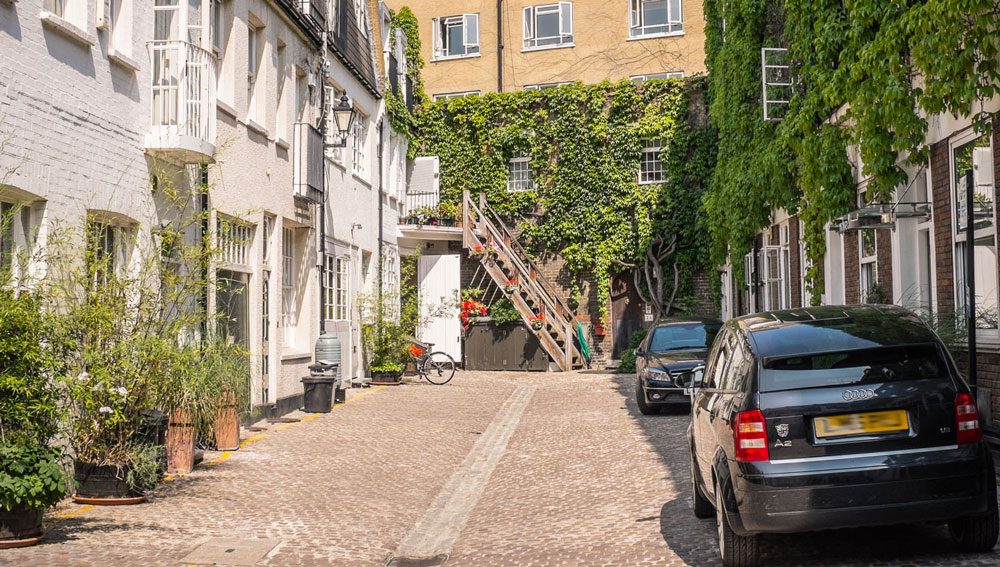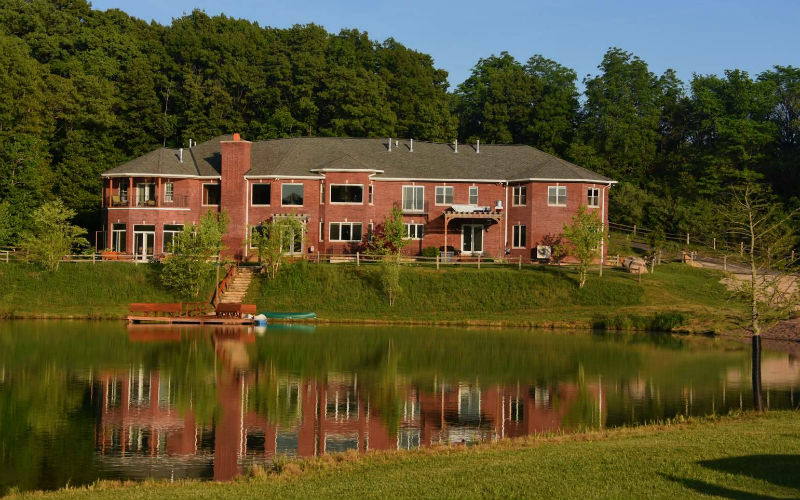Your recovery is your responsibility—but it doesn’t have to be yours alone. Support groups offer a sober community to support and celebrate you throughout recovery. It’s important to find a support group where you feel heard, so you can feel safe to share your story. And sometimes, women find it hard to achieve that in mixed-gender settings.
Women’s support groups invite members to connect with other women in recovery who share similar life experiences. These spaces can offer you a stable community during or after a women-only rehab program.
The Role of Support Groups for Women in Recovery
Many women with alcohol addiction start drinking because of issues in their social lives,1 like the isolation many new moms feel after becoming a mother. And compared to men, addiction is more likely to negatively affect women’s social lives. When women decide to enter treatment, they typically have less social support to do so. As a result, many women begin their recovery journey without the help of a strong community.
However, studies show that women with more social support2 tend to stay in treatment and sober for longer. And it’s not just about receiving support from others. Women in recovery also benefit from giving support.
Not every relationship aids in recovery.3 In fact, your previous support network might even get in the way of your progress. Old friends might still drink heavily and refuse to change their behavior to support you. Or they may even pressure you to drink with them like you did before. These types of relationships make it very difficult to stay on track.
Studies show that the more supported you feel by your social circle, the more motivated you’ll be4 to stay in recovery. This is especially true for people who have recovery-specific support networks. When your friends are also in the process of healing, you’re more likely to stay sober. In many women-oriented treatment programs, you can connect with other women in recovery.
What Are Support Groups?
Peer support groups invite people in recovery to share mutual support5 without professional guidance. Instead, you’ll connect with peers who share your recovery goals.
These groups aren’t a replacement for addiction treatments like talk therapy. But they can be an important aspect of recovery nonetheless. Data shows that peer support groups motivate people to stay in recovery.6 They also decrease cravings and the risk of relapse.
Alcoholism Support Groups for Women
Many support groups are open to everyone, but some women may not be comfortable with mixed-gender groups.7 For example, women in addiction treatment may have a history of trauma at the hands of men. If that’s true for you, you might find it hard to be vulnerable with men in the room. Men also tend to be more dominant in mixed-gender interactions, speaking more than people of other genders. That pattern can prevent women from getting the support they need.
You might also just find it easier to relate to other women in recovery. People of the same gender face similar challenges, in recovery and other aspects of their lives. If you’d like to join a women-only support group, you can choose from several different options.
1. Women for Sobriety
Women for Sobriety (WFS) is a peer support group for women in recovery. Their New Life program revolves around 13 Acceptance Statements that urge members to recognize their own self-worth. Many of these are written as affirmations:
“I am responsible for myself and for my actions.I am in charge of my mind, my thoughts, and my life.”
This secular non-profit welcomes women from all religious backgrounds. Members talk about their lives and encourage each other to stay sober. They strive to let go of guilt and shame about the past, and focus on building a better future instead.
WFS hosts virtual and in-person meetings around the country. They also offer phone support. If you call in, you’ll speak to a member who’s been sober for at least a year.
2. SMART Recovery for Women
SMART (Self-Management and Recovery Training) Recovery takes a scientific approach to healing. Their free women’s support groups focus on 4 points of behavioral change:8
- “Building and maintaining the motivation to change.
- Coping with urges to use.
- Managing thought, feelings, and behaviors in an effective way without addictive behaviors.
- Living a balanced, positive, and healthy life.”
Participants learn how to manage their emotions using techniques from cognitive behavioral therapy (CBT). While most meetings are mixed gender, they also offer some women-only meetings. Dr. Natalie Unmesi, a SMART Recovery facilitator, explained why she started the first women-only meetings in New York City:9
“My hope is to create a safe space to address the unique biological and societal challenges that women face in accessing addiction treatment and in recovery from substance use disorders and other maladaptive behaviors. I love the space that we have created in our weekly meeting. We celebrate our collective successes, we support each other through challenging times in a nonjudgmental setting, and above all, we use the CBT-based SMART tools so that we may continue to take agency in our lives.”
3. She Recovers
She Recovers welcomes women and non-binary people recovering from a range of challenges:
- Drug and alcohol addiction, as well as behavioral addictions like sex and love
- Eating disorders
- Trauma
- Mental health issues
- Burnout
Unlike many other groups, She Recovers doesn’t hold to a strict philosophy of healing. Instead they recognize that while everyone’s healing journey is unique, social support is key for many women in recovery.
Sherri Beatty, a member and volunteer, says, “She Recovers put me on the road to recovery by introducing to me the most important part of recovery, connection!10 The friends and coaches I’ve found in this group are instrumental in my life.” You can attend in-person or online meetings, as well as trauma-informed yoga and dance classes.
4. Alcoholics Anonymous (AA) Women’s Meetings
Alcoholics Anonymous (AA) is one of the most well-known recovery support groups. In AA, you follow a 12-Step program as you work through the program. The 12 Steps guide you to accept your lack of control over alcohol and put faith in a higher power.
While AA is a spiritual fellowship,11 it’s open to people of all religious backgrounds. Studies show that this spiritual focus is beneficial to many people’s success in recovery. But if spirituality doesn’t resonate with you, these meetings might not be a good fit. While general AA meetings are open to all genders, it’s easy to find women-only meetings in person and online.
5. Sober Mom Squad
Sober Mom Squad is a support group for mothers in recovery. Founder Emily Paulson explains how isolating motherhood is for many women:12
“Back when women were all in the hut together, raising their children side by side, they had the support needed to be the present parents those times required. Today, we are on our own. We stand in the kitchen screaming by ourselves, and we wonder why no one is listening.”
Isolation can lead to addiction.13 Sober Mom Squad invites mothers to connect with their peers and discuss the specific challenges mothers face:
- Drinking while pregnant
- Losing custody of children
- The pressures of motherhood
- The normalization of drinking at events for mothers
They offer 2 virtual meetings a week. One is for all members, while the other is for mothers less than a year into recovery. They also hold meetings for women of color, single mothers, and parents of neurodivergent children.
Sober Mom Squad also has a private online community where members can connect with each other between meetings. And their Sober Mom Support In Sobriety companions offer individualized support. They also host a monthly book club.
6. The Phoenix
The Phoenix supports recovery through fitness classes and outings. Members believe in the physical and emotional power of self-transformation. They offer over 20 different types of fitness classes, from skiing to yoga. Classes are free to anyone who has been sober for at least 48 hours. The Phoenix has chapters in 44 states, and you can live stream classes on demand.
Dina, a member of The Phoenix, describes how the dual focus on social support and physical fitness14 helps her recovery. “It’s not just the physicality of it…we’re not friends, we’re family, and you’re not made to feel welcome because that’s their job…we want to help you save your life.”
Most meetings are open to all genders. However, you can contact your local chapter to ask about their women-only classes. For example, they occasionally partner with organizations like She Recovers. The Phoenix also has very strict community standards against sexism,15 racism, homophobia, and aggressive behavior or language in classes.
7. In The Rooms
In The Rooms is a virtual venue for additional connection between in-person meetings about recovery. It’s especially helpful for people who are traveling, live far from in-person support groups or have social anxiety. Their meetings offer social support when you need it most. As co-founder Ron Tennebaum explains, “You need a support system.16 You need someone to call on days when you wake up and you really want to pick up a drink or a drug.”
This organization offers 150+ live virtual sessions a week, including 12-Step and non-12-Step meetings. You can find meetings for people recovering drugs, alcohol, gambling, sex and love addiction, codependent relationships and more. They host meetings for other women-only groups like She Recovers and AA for Women in Recovery.
How to Find and Join Support Groups
Every support group has a slightly different ethos. It’s important to find one that can help you meet your recovery goals. To do that, you can ask your care team for recommendations. They’ll likely have context about your specific addiction, so they’ll be able to help you choose the right group. If you know other people in recovery in your area, you can also ask them about any groups they’re part of.
You can also search online databases for local meetings. Many support group websites have a page for in person and online meetings based on your location. Some people find that it’s easier to attend virtual meetings at first, for a few reasons. First, they eliminate any travel time or logistics. Second, some online meetings let you join without turning on your video or microphone. Observing a meeting can give you a sense of what to expect, without the pressure of joining in right away.
For more information on gender-specific treatment, see this resource for healing from substance use disorders.
Support Groups Give Community to Women in Recovery
Support groups are a valuable supplement to many women’s recovery. But they can’t replace formal treatment. During or after rehab, you can build a stronger community by connecting with your peers.
This approach can be central to every part of your recovery process. Search women-only rehab programs to find one that meets your needs.
Frequently Asked Questions About Women’s Sobriety Support Groups
Why is it important for women in recovery to have social support?
Women in recovery tend to have less social support compared to men. Studies show that women with more social support tend to stay in treatment, and stay sober, longer. Women who have recovery-specific support networks are more motivated to stay sober.
Why might some women feel more comfortable in women-only sobriety support groups?
Some women may feel uncomfortable in mixed-gender support groups due to a history of gender-related trauma. Women might also find it easier to relate to other women in recovery who face similar challenges. Men tend to dominate mixed-gender interactions, speaking more than people of other genders, which can prevent women from getting the support they need.
What are some examples of women-only sobriety support groups?
Women-only sobriety support groups include, but aren’t limited to, Women for Sobriety, SMART Recovery for Women, She Recovers, Alcoholics Anonymous (AA) women’s meetings, Sober Mom Squad, The Phoenix, and In The Rooms.














